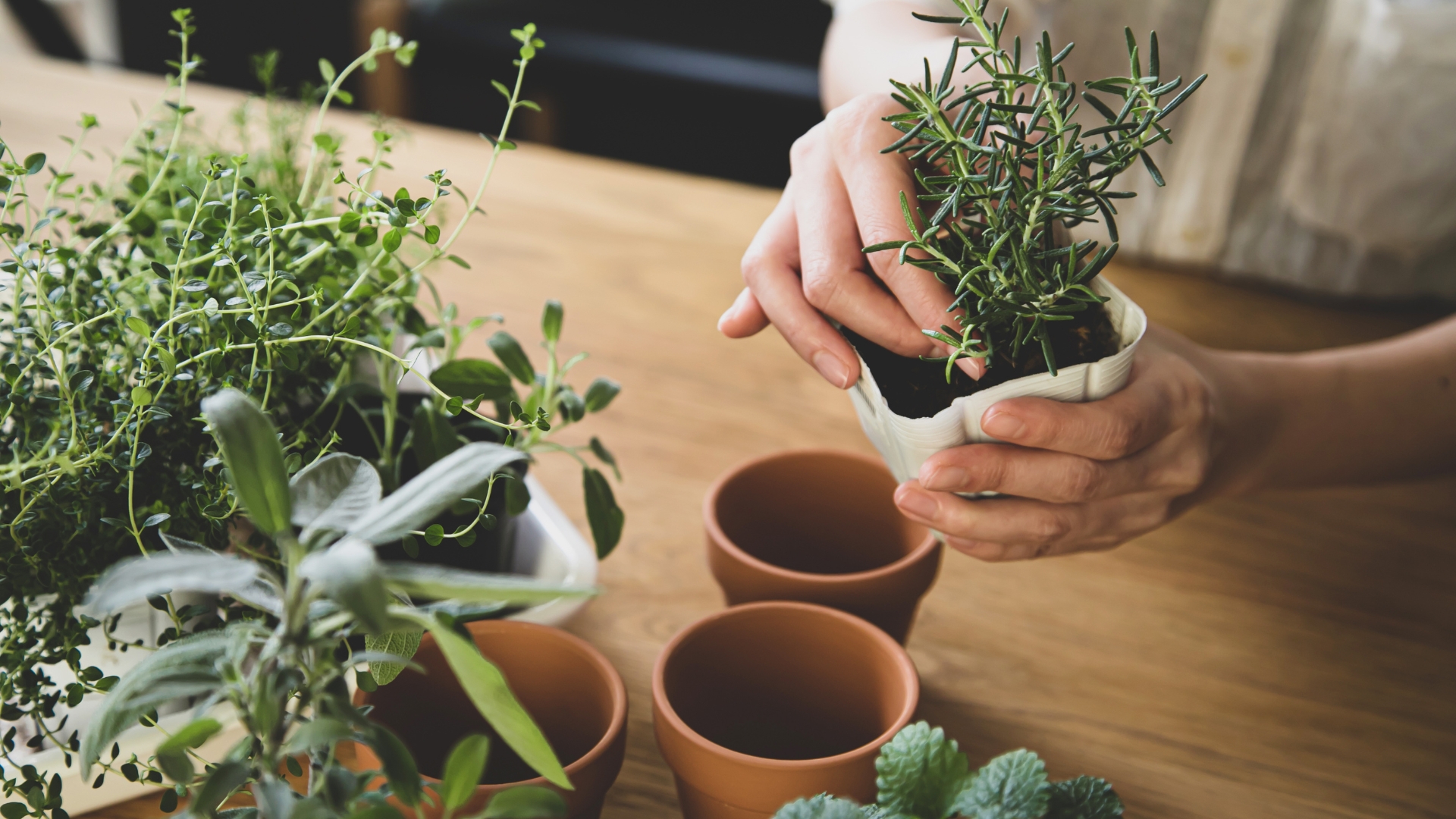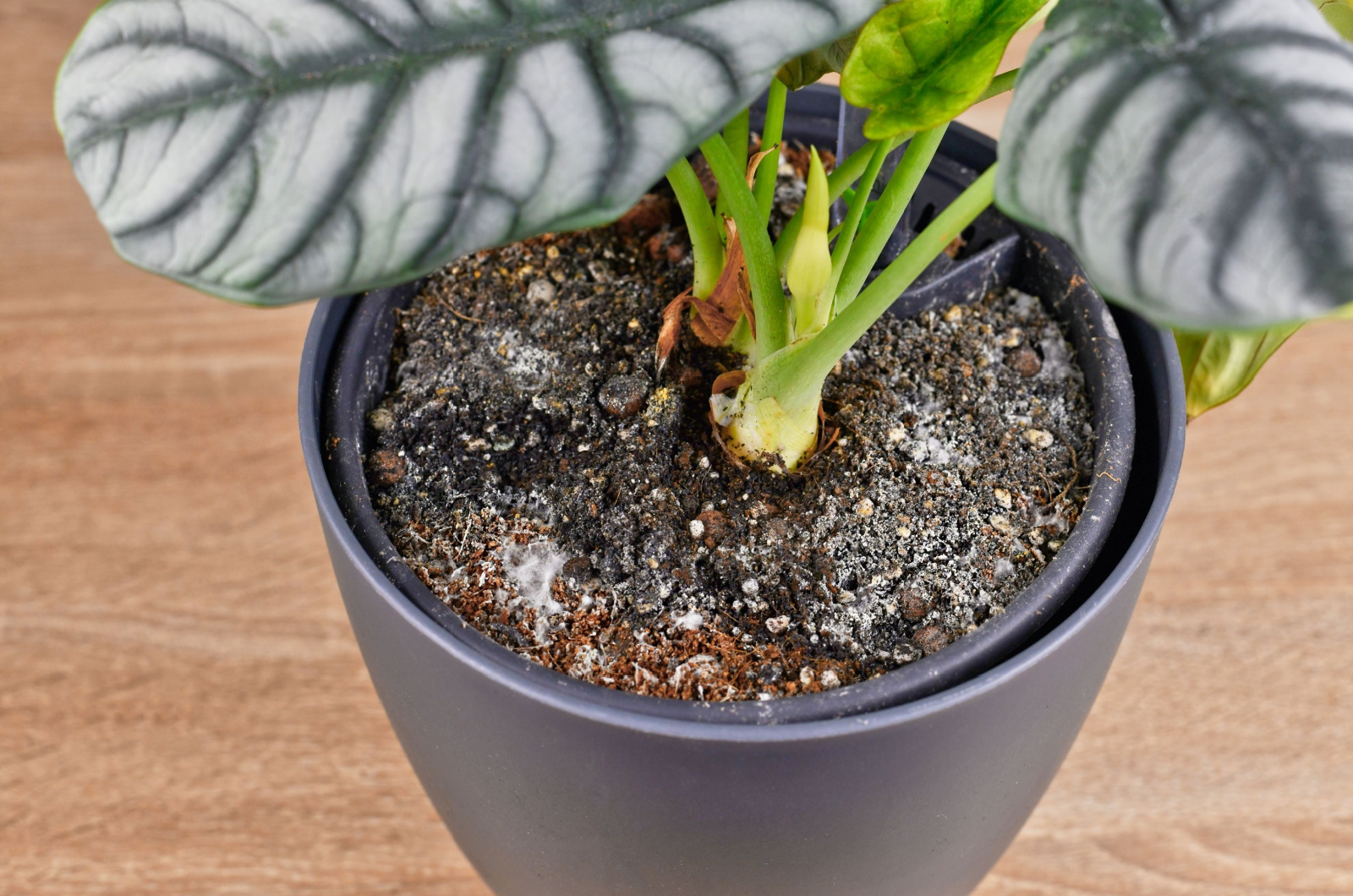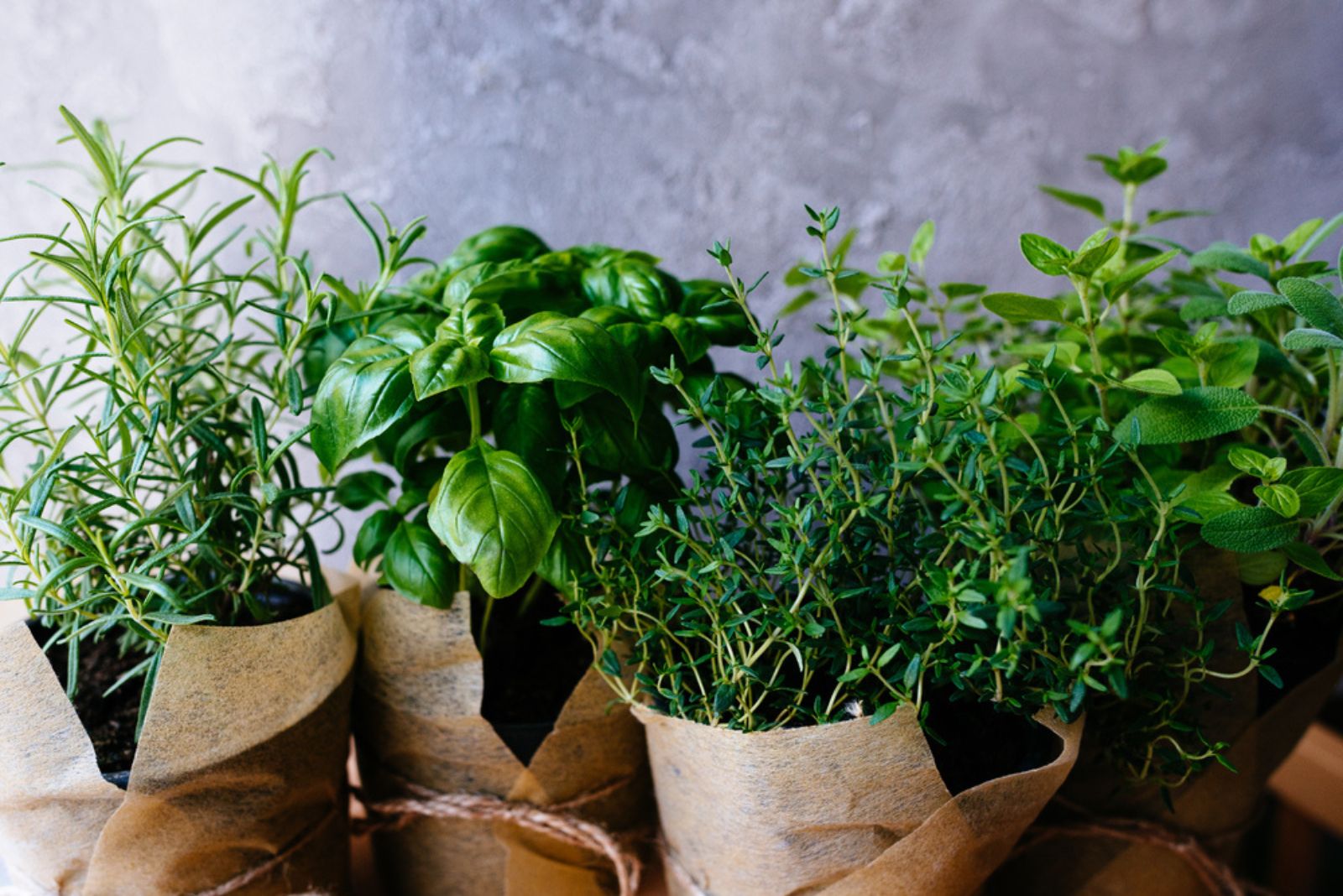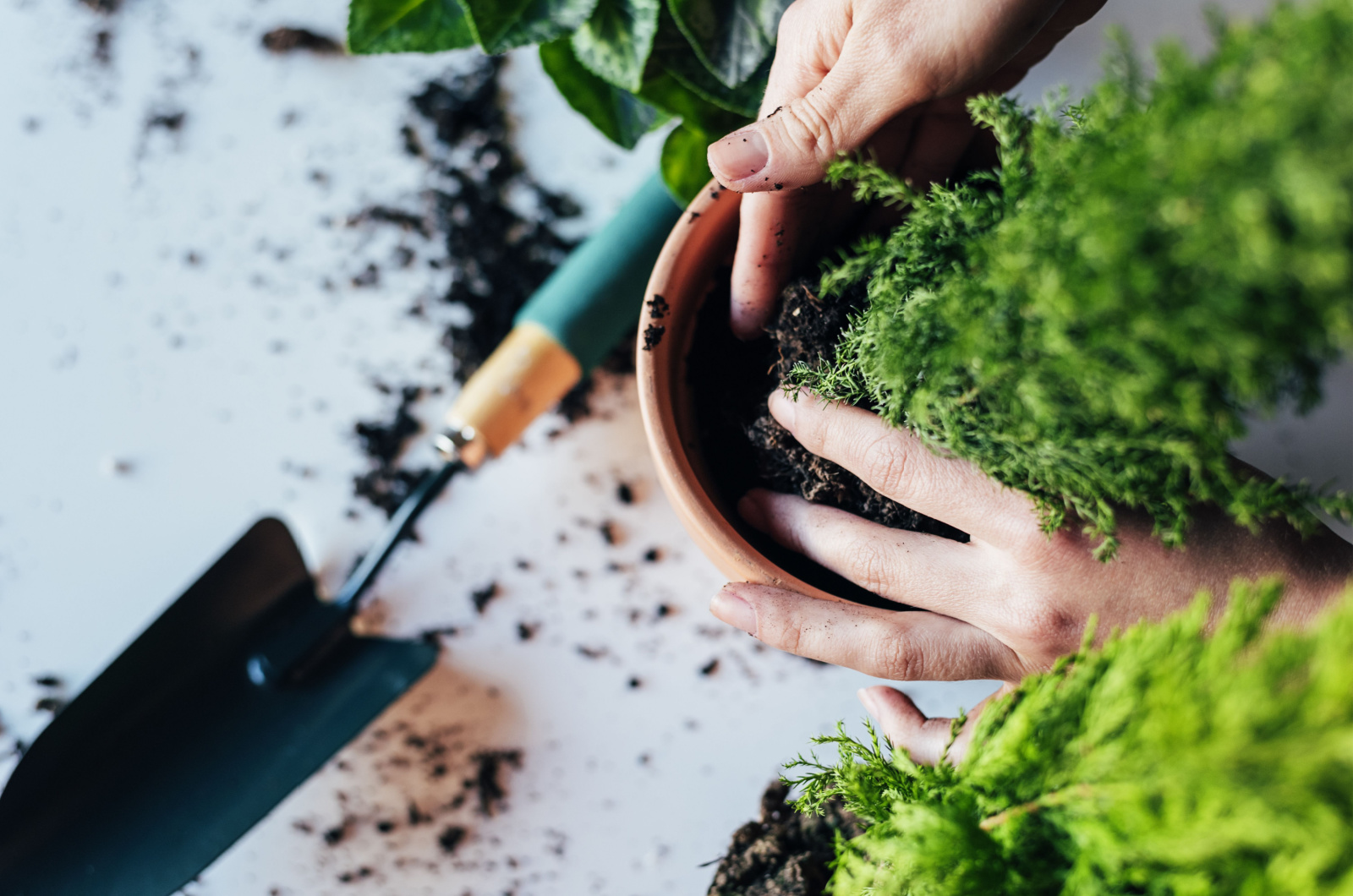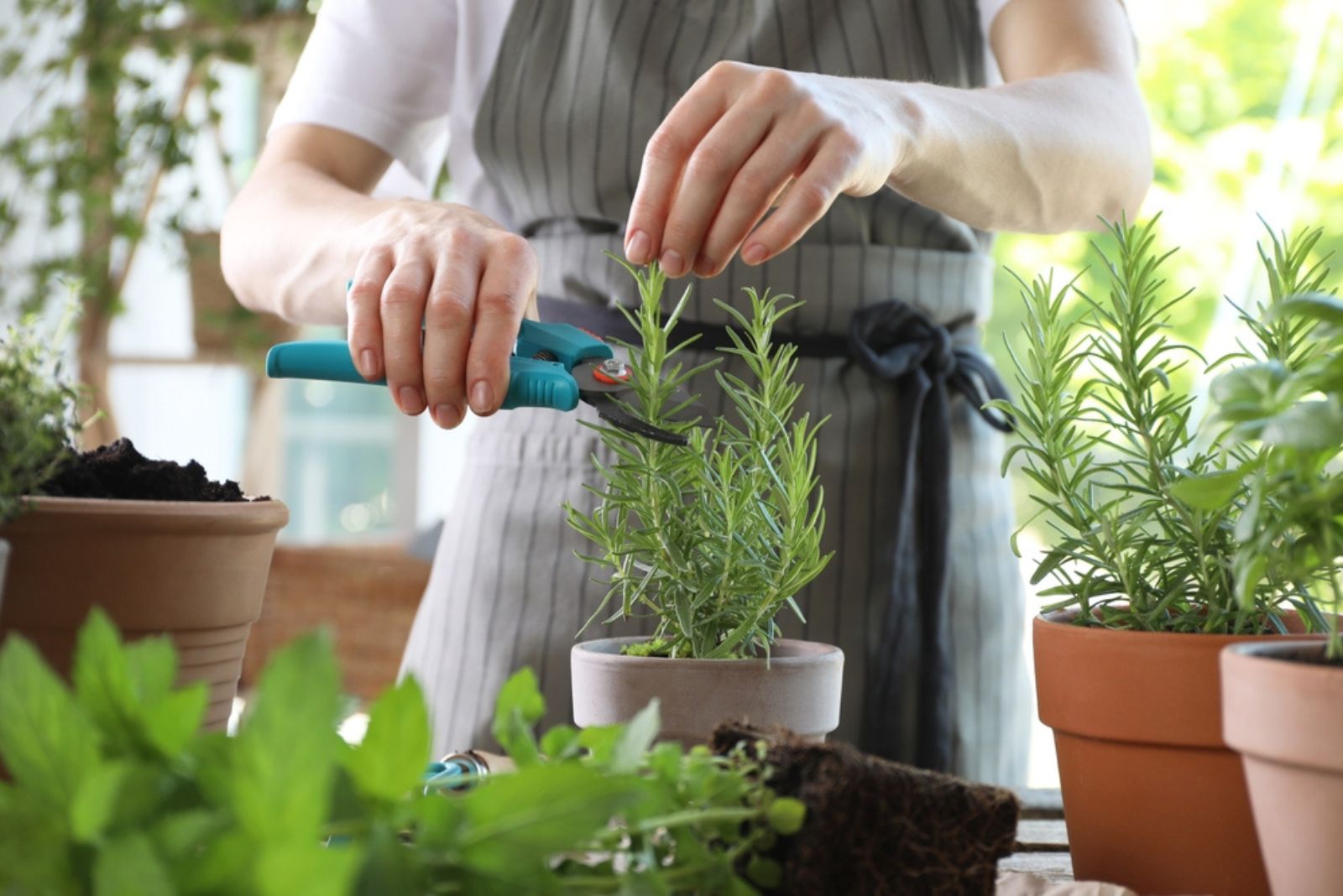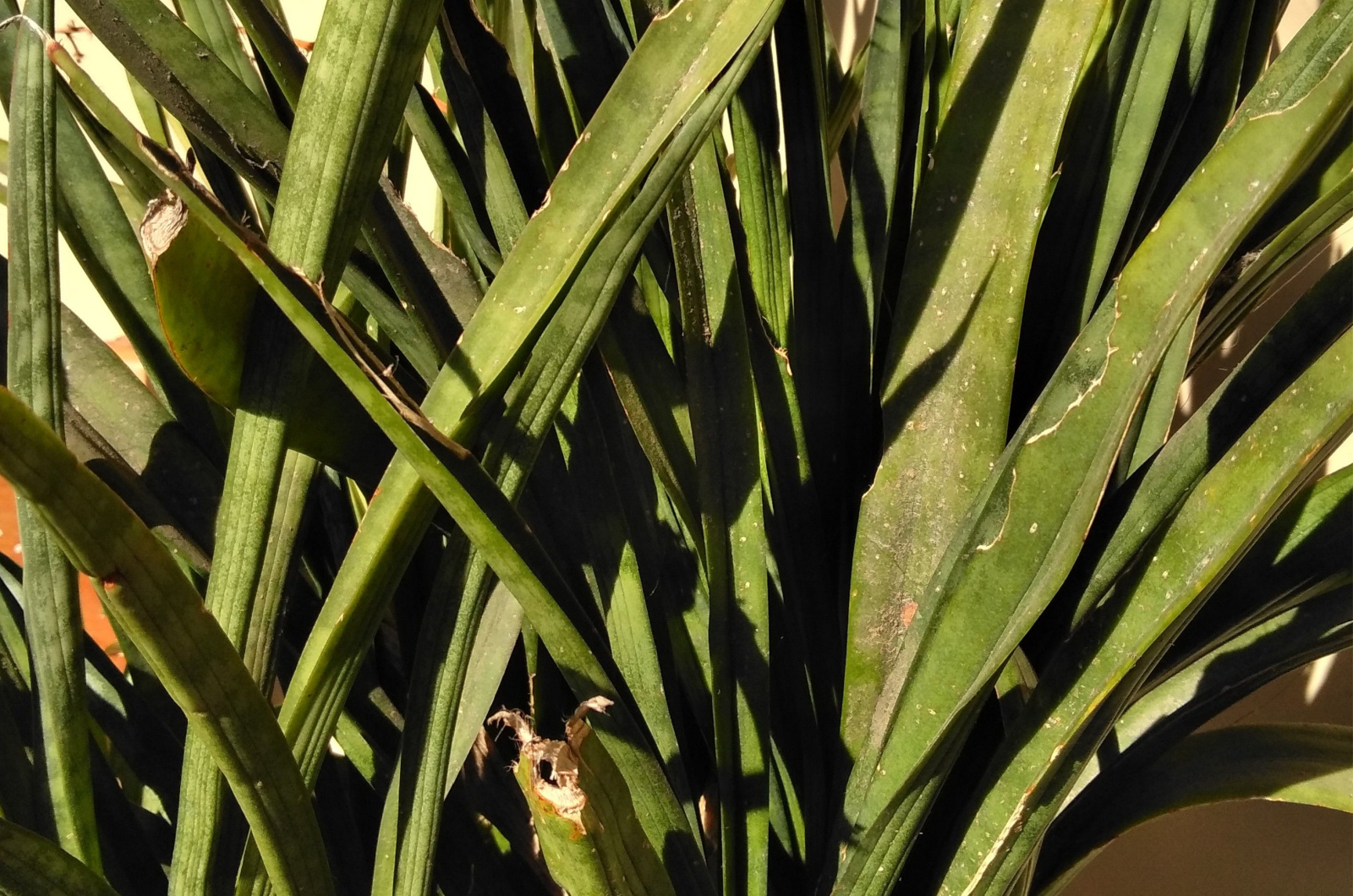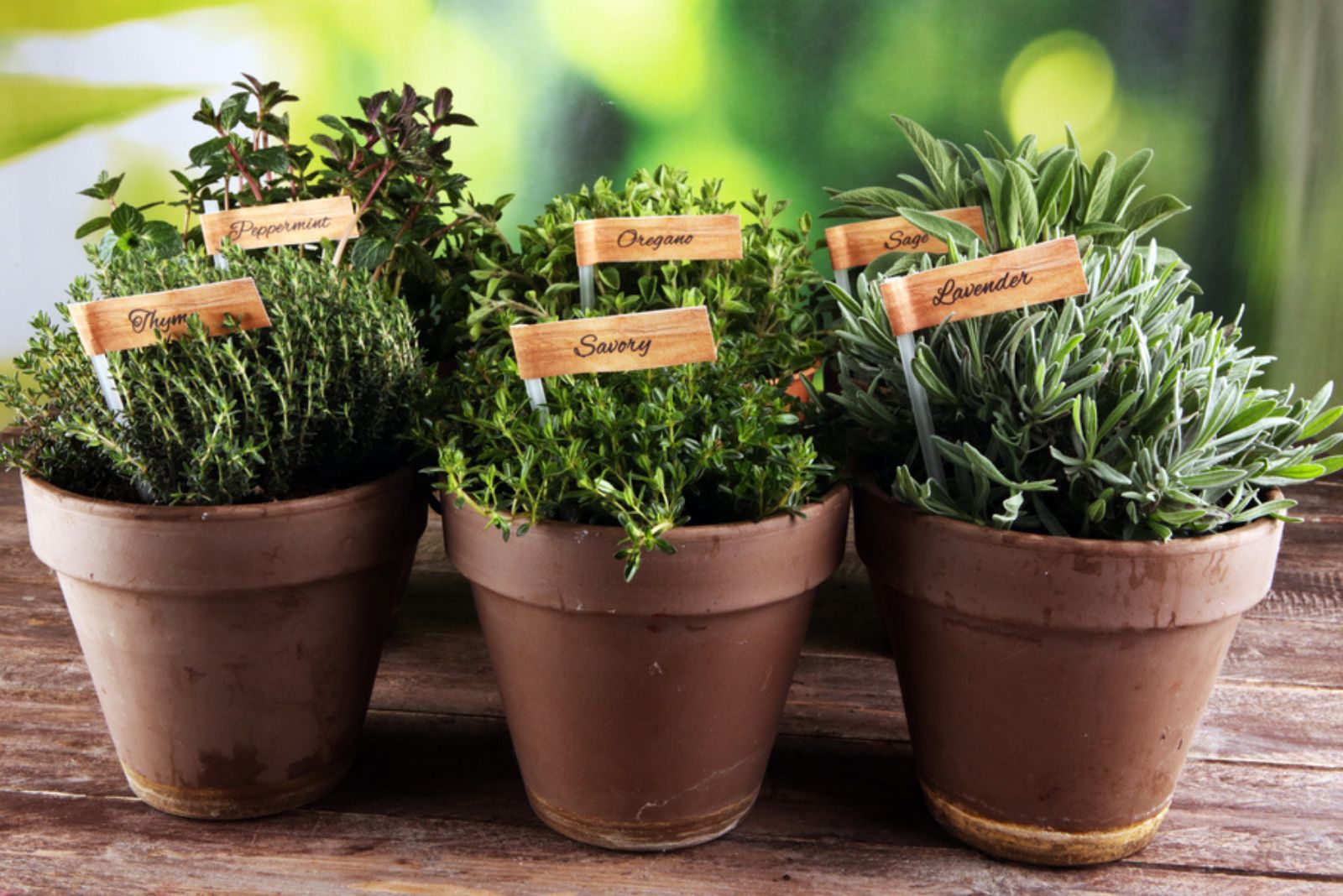Growing herbs indoors is an excellent way to utilize empty window sills and bring some life into your kitchen. And having your favorite condiments within reach is quite useful.
However, growing herbs indoors isn’t the same as planting them outside and there are a couple of things we tend to get wrong.
And to have the best-smelling and tasting herbs, there are some things you need to avoid, such as overwatering, overcrowding, etc.
Let’s find out more about those mistakes that may cost you an incredible harvest!
1. Overwatering
Overwatering is one of the most common mistakes when caring for indoor plants and herbs.
We hear that potted plants require more water than in-ground varieties and we immediately saturate them with moisture.
However, constant irrigation will eventually lead to root rot, which is why you should water your herbs only when the topsoil is dry or even less frequently if you’re growing thyme and rosemary.
A potting mix with excellent drainage and pots with holes in the bottom will help remove the excess moisture quickly, so don’t skip out on these things.
And if you’re still afraid of overwatering, try growing hydroponic herbs. I know it sounds paradoxical, but it actually works!
2. Poor Sun Exposure
There are many herb garden ideas you can implement in your indoor and outdoor gardens, and one of them is finding a location with sufficient sunlight.
Herbs need full sun to develop properly, and lack of sun will result in weak and leggy plants.
Place your potted herbs in a sunny window and rotate them every now and then so that each part of the plant gets an equal amount of sunlight.
And if you don’t have a bright window, you can always use artificial grow lights.
3. Using Wrong Planters
I’d argue that growing herbs in pots is much easier than caring for them in the garden, but not if you make a crucial mistake and choose an improper container.
Drainage holes are a must and without them your herbs will soon rot.
Go for a planter that can accommodate the entire root system of your plant because tiny containers will inhibit the growth of your herbs.
Terracotta pots are perfect because they are more porous than plastic ones and will dry out faster, reducing the risk of overwatering and root rot.
4. Forgetting To Prune (And Harvest)
Pruning and harvesting herbs is basically the same thing, and an unavoidable part of any indoor herb care routine.
If you forget to do this, your plant will become weak and leggy.
Additionally, harvesting herbs regularly will promote bushier and lusher growth, increasing the yield of a single plant.
This method will also allow you to avoid overcrowding your space – an issue I’ll talk about in the following section.
Finally, if you don’t harvest or prune your herbs, they’ll eventually flower and go to seed, finishing their life cycle and ceasing to produce any more of their aromatic leaves.
5. Overcrowding
It’s quite tempting to grow various herbs in a single container and get the most out of your space. And don’t get me wrong, there are many varieties that can grow well together, as you can see in any herb companion planting chart.
However, stuffing too many plants in a single container will lead to various problems, such as lack of room for root development, not enough nutrients for each plant, etc.
Therefore, if you don’t have a huge container in which you can grow basil and chives together, opt for separate planters.
And remember not to overcrowd your window sills and place pots right next to each other. Close placement can lead to a lack of air circulation, increasing humidity and the risk of fungal diseases.
Luckily, you can avoid the airflow issue by opening some windows, properly distancing your herbs, and placing them in a well-ventilated spot.
Herbs You Should Avoid Growing Next To Each Other
You shouldn’t grow drought-tolerant (thyme, rosemary, sage, marjoram) and moisture-loving herbs (basil, chives, chamomile) in the same container because of their different water requirements.
But if you plant them in separate planters, you can place them next to each other and enjoy their fragrances.
The only herb you shouldn’t place in close proximity to any other herb (aside from dill and maybe sage, oregano, and chives) is fennel. It is allelopathic and can inhibit germination and growth of its companions. (1)
Finally, I have to mention that growing herbs indoors will give you a harvest equal to what you would get by growing them outside if you provide them with optimal conditions.
Therefore, avoid these five common mistakes and you’ll get the yield of your dreams!
References:1. Nourimand, M., Mohsenzadeh, S., Teixeria da Silva, J. A., Saharkhiz, M. J. (2011). Allelopathic Potential of Fennel (Foeniculum vulgare Mill.). Global Science Books: Medicinal and Aromatic Plant Science and Biotechnology.

